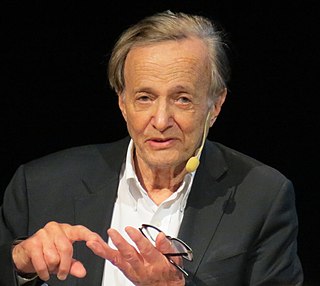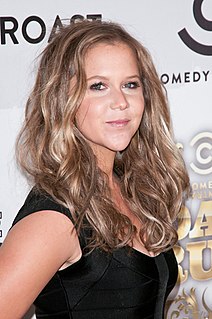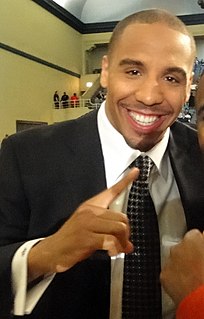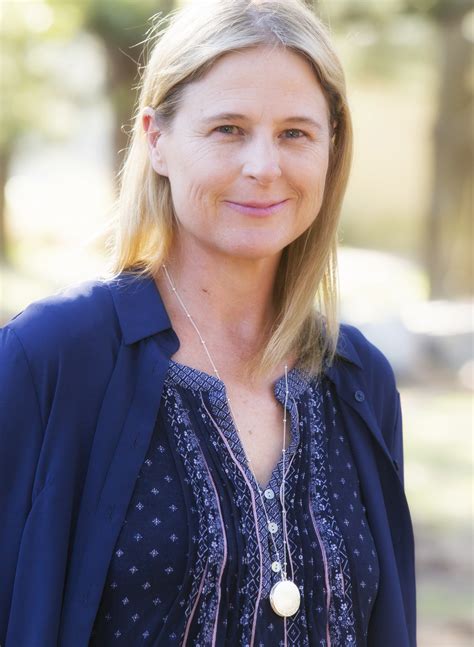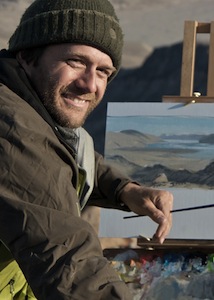A Quote by Astra Taylor
We haven't developed a progressive vocabulary. We say something is "public," but we just mean it's viewable online. Or we say it's "open," but we just mean it's accessible. I would like for us to think about terms critically and maybe change our vocabulary a bit. What if pubic actually meant publicly-funded, or social meant socialized.
Related Quotes
Any true wizard, faced with a sign like 'Do not open this door. Really. We mean it. We're not kidding. Opening this door will mean the end of the universe,' would automatically open the door in order to see what all the fuss is about. This made signs rather a waste of time, but at least it meant that when you handed what was left of the wizard to his grieving relatives you could say, as they grasped the jar, 'We told him not to."
Will you listen to me just this once?” he nearly yelled. “I . . . I like you, Maddy. I mean, more than just as a friend. Are you so stubborn you can’t see that? Maybe last night meant nothing to you, but it meant something to me.” His eyes were vulnerable, almost tortured. “Did you ever even consider that I might love you, you stubborn, impossible girl?
I think the whole concept behind lyrics is you better mean what you say, or you should like, become a storyteller. I mean, there's a lot of bands who are just storytellers, and then there are bands who actually have something valid to say. And the bands who have valid points are few and far between.
It's not like it's a brand new vocabulary that permits to have a new reality. It's rather a new vocabulary that lets us see that our lives have always been more complex than traditional categories allow. So, I think, you know, maybe the introduction of new words permits us to rethink what we've taken for granted about what forms bodies take, what the name is for certain kinds of sexual, intimate relations, how we think of a life.
I'm super grateful that there wasn't social media when I was a kid, but that sort of self-doubt crept in at a young age. It's bullying. It's the comments here and there, and maybe somebody says something to you that they don't even mean to be a mean-spirited comment, but they'll just kind of say it to you in passing.
Once a term like "open source" entered our vocabulary, one could recast the whole public policy calculus in very different terms, so that instead of discussing the public interest, we are discussing the interests of individual software developers, while claiming that this is a discussion about "innovation" and "progress," not "accountability" or "security."
The No. 1 question I get is, "Do you believe in an open-borders policy?" I'm like, wait a second: What does that really mean? When you say open-borders policy, do you mean that - this is like the US-Mexico border? We put up a sign that says "Keep Out," then 10 yards in we say, "Job Wanted." Is that what people mean by open borders? So that usually shuts people up. But that's the truth.
Dear Complete and Utter Stranger, The first thing that I have to say is that I hate oatmeal. I really hate it. And you know what? If you like oatmeal at all? I mean even the tiniest bit? I mean, say you were lost in the Himalayas, right, and you hadn't eaten anything except a Mars Bar for about seven years, right, and you're really cold and your fingers are all dropping off, right, and you look behind this rock, and there's this bowl of oatmeal? Say you would even think about eating the oatmeal? Well, JUST DON'T BOTHER WRITING TO ME, OKAY?
I'm thinking about the idea of poetic license. People say that about certain writers: "Oh, the grammar sucks, but it's just the poetic license." We accept it as being an art form of sorts: the incorrect rearrangement of meaningful things. Unlike sciences, literature as art relies on societal acceptance of a certain vocabulary. We're just making sounds out of our mouths if we don't both accept that what I'm saying has very significant meanings, and I'm accurately targeting what vocabulary I use and how I arrange each word.
America has never had a very wide vocabulary for miscegenation. We say we like diversity, but we don't like the idea that our Hispanic neighbor is going to marry our daughter. America has nothing like the Spanish vocabulary for miscegenation. Mulatto, mestizo, Creole - these Spanish and French terms suggest, by their use, that miscegenation is a fact of life. America has only black and white. In eighteenth-century America, if you had any drop of African blood in you, you were black.
Like most terms of political discourse, socialism has more or less, lost its meaning. Socialism used to mean something. If you go back far enough it meant basically control of production by producers, elimination of wage labor, democratization of all spheres of life; production, commerce, education, media, workers control of factories, community control of communities, and so on. That was socialism once. But it hasn't meant that for a hundred years. Socialism meant something different.




